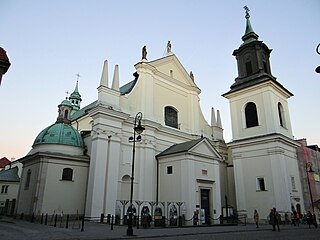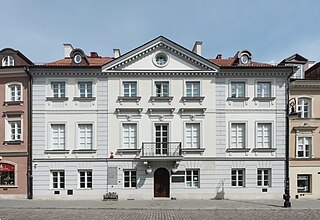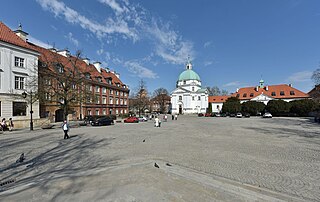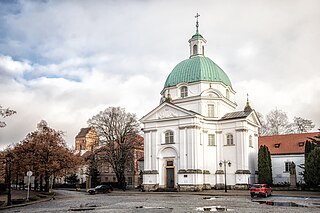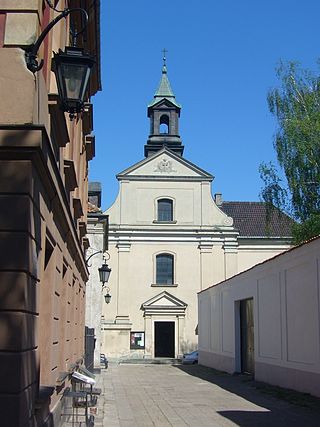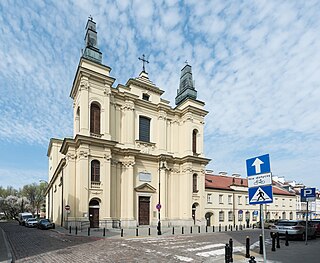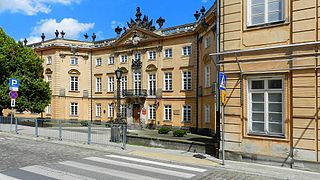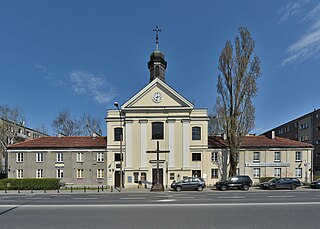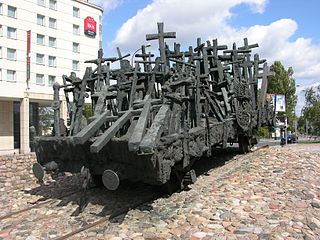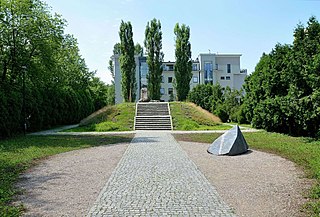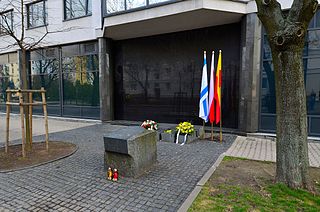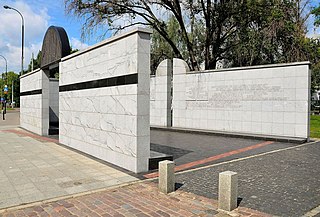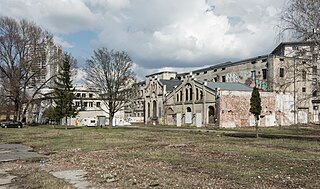Self-guided Sightseeing Tour #11 in Warsaw, Poland
Legend
Guided Free Walking Tours
Book free guided walking tours in Warsaw.
Guided Sightseeing Tours
Book guided sightseeing tours and activities in Warsaw.
Tour Facts
3.8 km
32 m
Experience Warsaw in Poland in a whole new way with our free self-guided sightseeing tour. This site not only offers you practical information and insider tips, but also a rich variety of activities and sights you shouldn't miss. Whether you love art and culture, want to explore historical sites or simply want to experience the vibrant atmosphere of a lively city - you'll find everything you need for your personal adventure here.
Activities in WarsawIndividual Sights in WarsawSight 1: Saint Hyacinth's Church
St. Hyacinth's Church, named after Saint Hyacinth of Poland, is a Baroque Catholic church building located in Warsaw's New Town at Freta Street 8/10.
Wikipedia: St. Hyacinth's Church, Warsaw (EN), Website, Twitter, Facebook
Sight 2: Maria Skłodowska-Curie Museum
The Maria Skłodowska-Curie Museum is a museum in Warsaw, Poland, devoted to the life and work of Polish double Nobel laureate Maria Skłodowska-Curie (1867–1934), who discovered the chemical elements polonium and radium.
Wikipedia: Maria Skłodowska-Curie Museum (EN), Facebook, Instagram, Website
Sight 3: Rynek Nowego Miasta
New Town Market Place is the main square of the New Town of Warsaw, Poland.
Sight 4: Kościół pw. św. Kazimierza
St. Casimir Church is a Roman Catholic church in Warsaw's New Town at Rynek Nowego Miasta 2.
Sight 5: Kościół pw. św. Benona
St. Benno's Church, actually the rector church of St. Benno in Warsaw, is a church located in Warsaw's New Town at 1 Piesza Street, belonging to the Redemptorist Congregation. The Redemptorist Provincial Curia is also located at the church.
Wikipedia: Kościół św. Benona w Warszawie (PL), Website, Facebook
Sight 6: Kościół pw. Stygmatów św. Franciszka
The Church of St. Francis is a church adjoining Franciscan convent in Warsaw's New Town.
Sight 7: Pałac Sapiehów
Sapieha Palace is one of the palaces in Warsaw New Town district of Warsaw, Poland. Started by the powerful Sapieha family who gave the name to the building, it currently houses the Environmental Protection School Complex.
Sight 8: Kościół Świętego Jana Bożego
The Church of John of God is a Roman Catholic church belonging to the Brothers Hospitallers of St. John of God. It is located at 12 Bonifraterska Street in Warsaw. From 1976 to 2013 it was the seat of the now defunct parish of St. John of God.
Sight 9: Poległym i Pomordowanym na Wschodzie
The Monument to the Fallen and Murdered in the East is a monument in Warsaw, Poland which commemorates the victims of the Soviet invasion of Poland during World War II and subsequent repressions. It was unveiled on 17 September 1995, on the 56th anniversary of the Soviet invasion of 1939.
Wikipedia: Monument to the Fallen and Murdered in the East (EN)
Sight 10: Kopiec Mordechaja Anielewicza
The Anielewicz Bunker, also known as the Anielewicz Mount was the headquarters and hidden shelter of the Jewish Combat Organization (ŻOB), a Jewish resistance group in the Warsaw Ghetto in Poland during the Nazi German occupation of World War II.
Sight 11: Pomnik Szmula Zygielbojma
The Monument to Szmul M. Zygielbojm is a monument located at 6 Lewartowskiego Street in Warsaw's Muranów district, commemorating Szmul Zygielbojm.
Sight 12: Polin Museum of the History of Polish Jews
POLIN Museum of the History of Polish Jews is a museum on the site of the former Warsaw Ghetto. The Hebrew word Polin in the museum's English name means either "Poland" or "rest here" and relates to a legend about the arrival of the first Jews to Poland. Construction of the museum in designated land in Muranów, Warsaw's prewar Jewish quarter, began in 2009, following an international architectural competition won by Finnish architects Rainer Mahlamäki and Ilmari Lahdelma.
Wikipedia: POLIN Museum of the History of Polish Jews (EN), Website
Sight 13: Umschlagplatz
Join Free Tour*Umschlagplatz was the term used during The Holocaust to denote the holding areas adjacent to railway stations in occupied Poland where Jews from ghettos were assembled for deportation to Nazi death camps. The largest collection point was in Warsaw next to the Warsaw Ghetto. In 1942 between 254,000 – 265,000 Jews passed through the Warsaw Umschlagplatz on their way to the Treblinka extermination camp during Operation Reinhard, the deadliest phase of the Holocaust in Poland. Often those awaiting the arrival of Holocaust trains, were held at the Umschlagplatz overnight. Other examples of Umschlagplatz include the one at Radogoszcz station - adjacent to the Łódź Ghetto - where people were sent to Chełmno extermination camp and Auschwitz.
Sight 14: Fabryka Garbarska Temler i Szwede
Temler and Szwede Tannery Factory in Warsaw – a former factory located at 78 Okopowa Street in Warsaw's Muranów district, in the Wola district. Before World War II, the complex was owned by the Temler and Szwede Tanning Factory Joint Stock Society.
Wikipedia: Fabryka Garbarska Temler i Szwede w Warszawie (PL)
Share
Disclaimer Please be aware of your surroundings and do not enter private property. We are not liable for any damages that occur during the tours.
GPX-Download For navigation apps and GPS devices you can download the tour as a GPX file.
